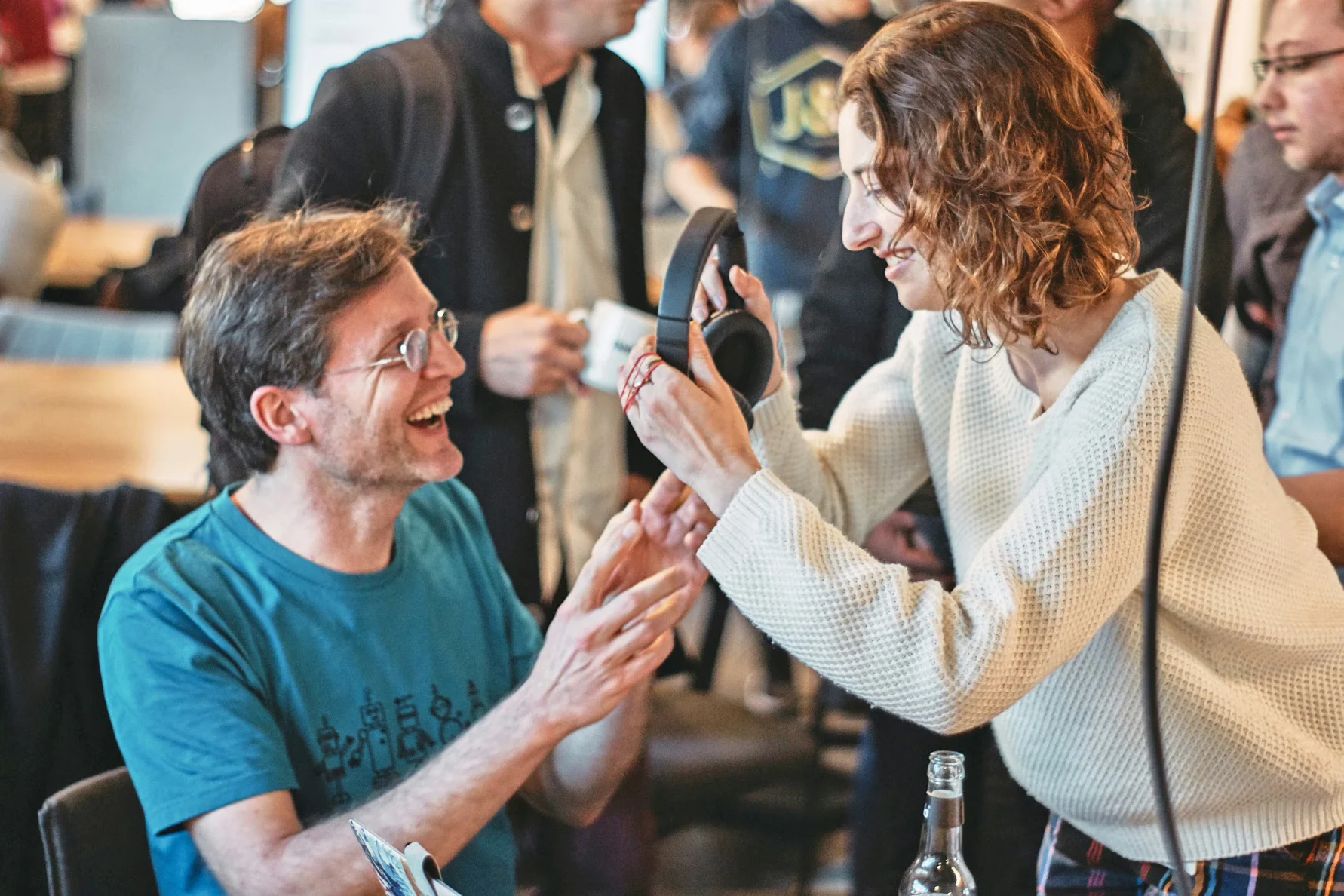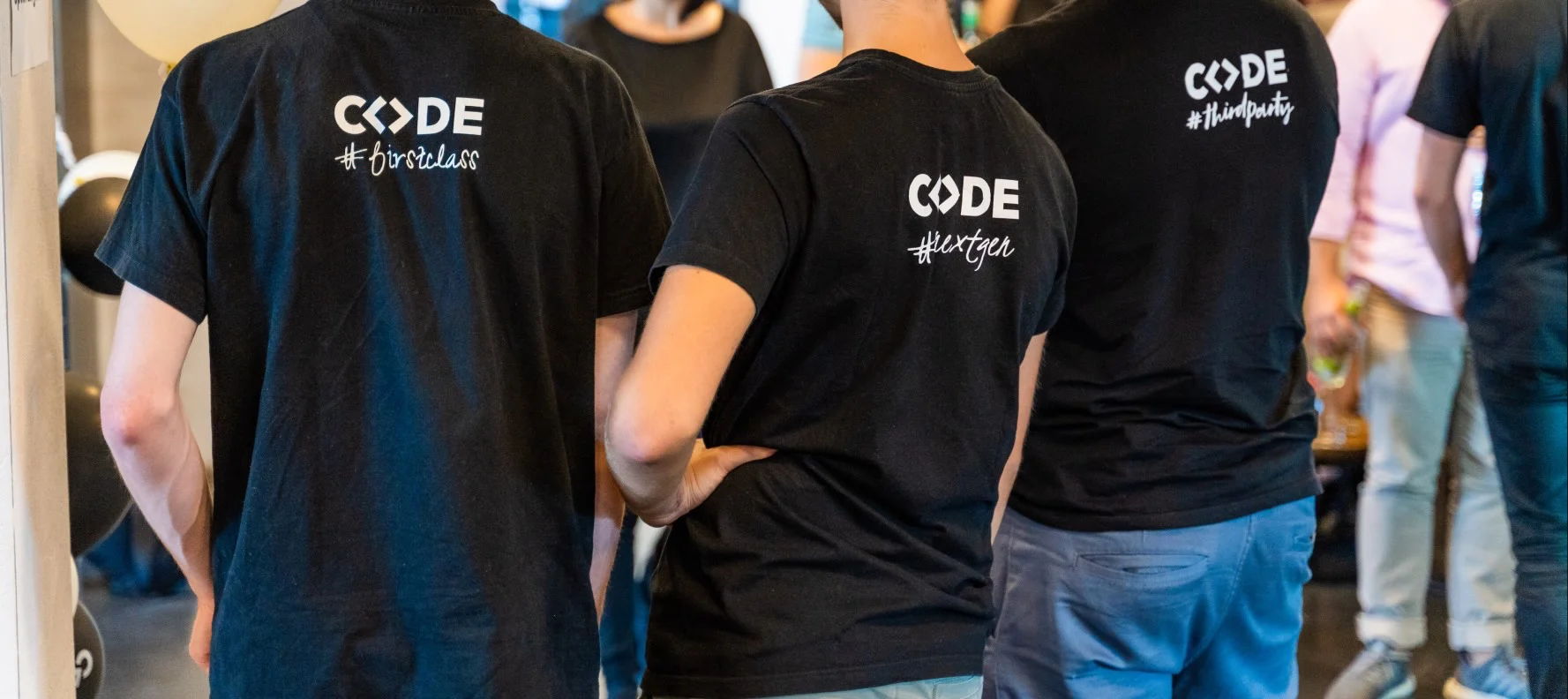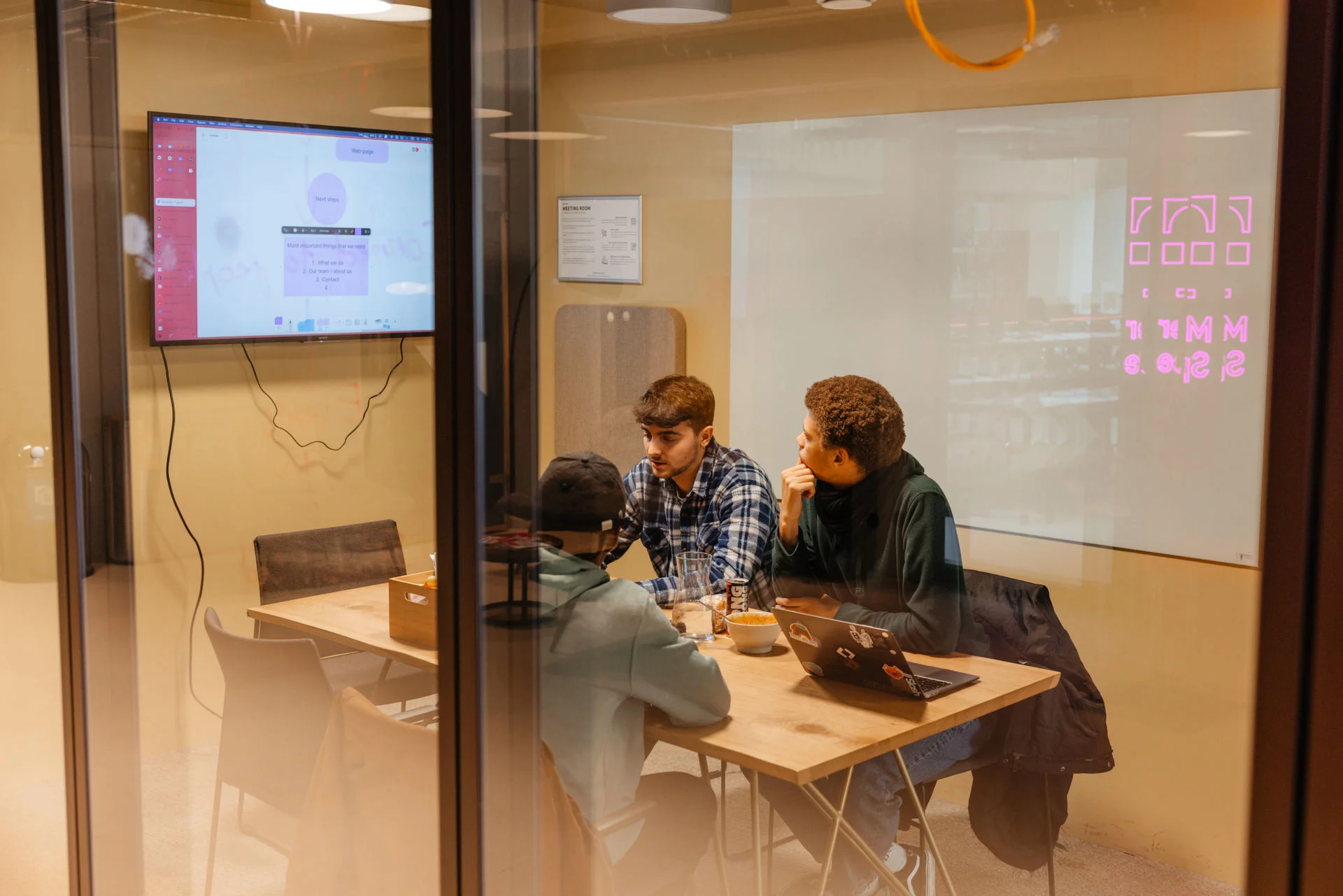Digital Design & Innovation, Bachelor of Arts
Designers shape how we perceive and interact with the world. Learn how to craft meaningful and delightful experiences for users, and how to design and prototype ideas into existence.


This program takes future designers on a journey that explores the look, feel and behavior to create positive experiences through technology. In the vast and fast-paced discipline of Digital Design & Innovation our study program prepares you to work in the creative industry where you put the human, instead of the function, as the starting point of designing the interaction with technology.
25.08.2025
Start dateEnglish
LanguageBerlin (on-site)
Location3 years (6 semesters)
DurationWhat’s the study program about?
Design is so much more than aesthetic choices. Its foundation is based on an understanding of context, of peoples wishes, needs, motivations, constraints. It explores how creative thinking can be utilized to design experiences in which technology plays a positive role.
We believe a Designer’s role is to challenge the status quo and to promote a positive society for all through the development of products and services.
Incorporating emerging insights from the discipline, the focus of the Digital Design & Innovation B.A. is to create people centered experiences mediated through technology, in which aspects of aesthetics and form are crucial for any successful digital product, regardless if the interface is digital or physical.
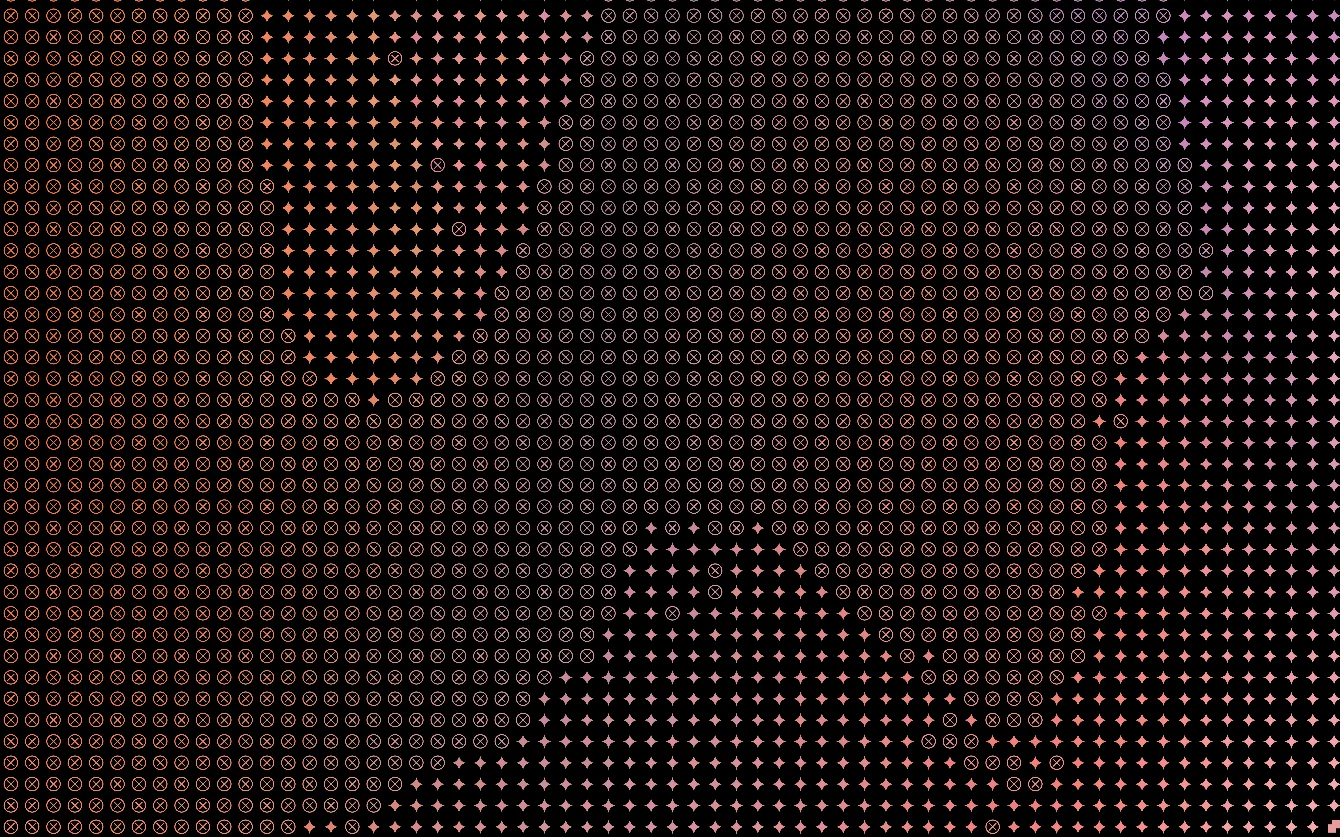
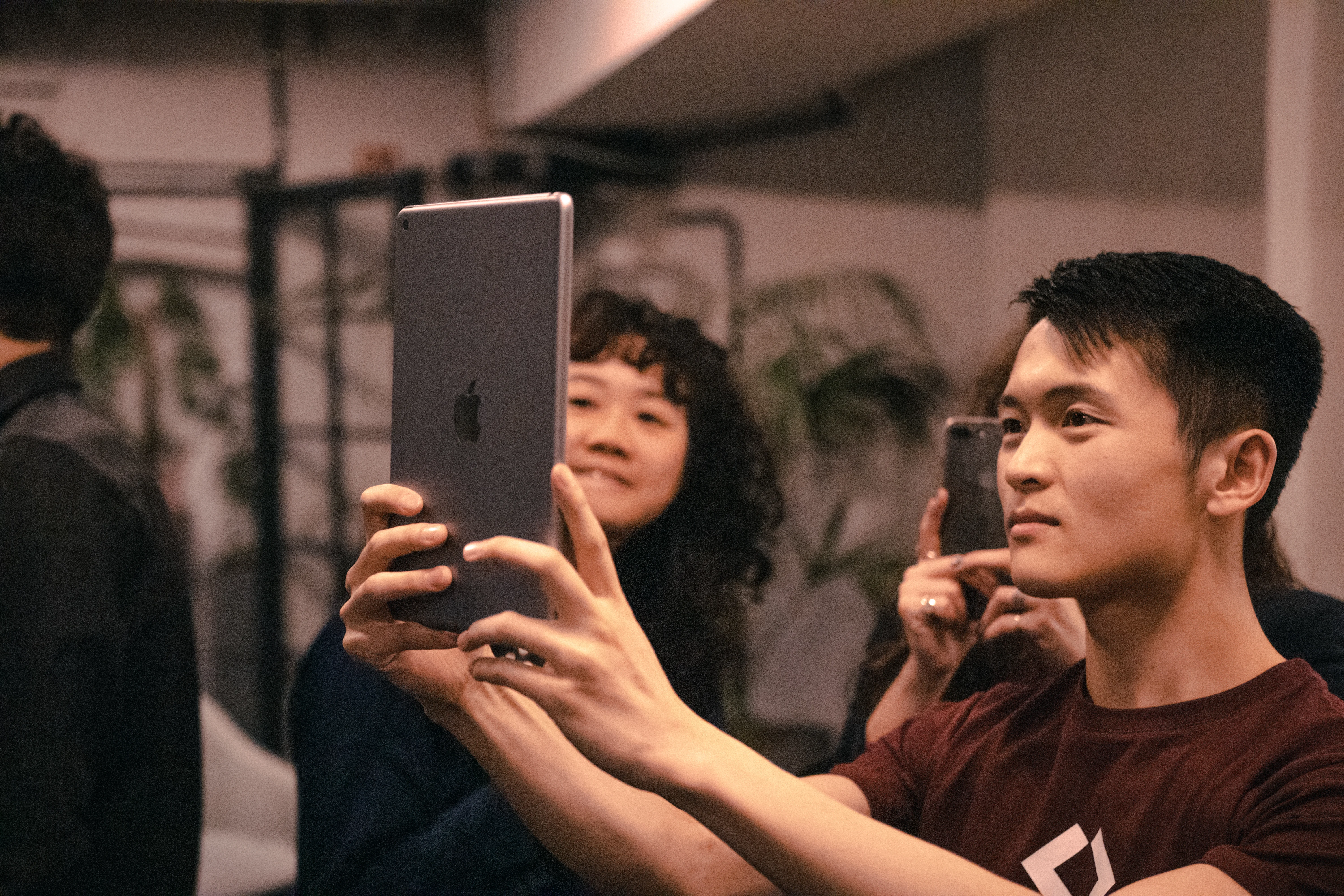
Modules in Digital Design & Innovation
At CODE, we emphasize turning creative ideas into reality, providing students with the tools and environment to bring their visions to life. The program combines skill acquisition with immersion in a culture of innovation, ensuring students not only learn practical techniques but also understand the broader context of their work and the discipline. These are some of the modules you can focus on during your studies.
Design Strategy
Explore the new and emerging role for design in industry and its contribution to product innovation and value proposition.
Brand Design
Make design decisions that consistently communicate the brand identity both visually (e.g. logo, color palette) and verbally (e.g. tone of voice).
AI in Design
Learn about Artificial intelligence (AI) and machine learning (ML) as design materials, investigate the potentials and challenges of AI techniques in a design and creative context.
Animation
Create dynamic motion graphics that bring visual storytelling to life. Your work will enhance digital content with engaging animations that captivate and inform audiences.
Composition
Explore color, contrast, shapes and proportions based on gestalt principles, practice photography fundamentals like composition and lighting and use photography as an expressive, experimental tool.
Design Methods
Investigate a self-defined context to explore motivations, behaviors and needs through design research methods. Create a body of work with experiments, documentation and reflective practice.
Visual Interface Design
Design user-friendly interfaces that connect digital solutions with their audience. The module covers user needs, wireframes, usability and design systems with a user-centered approach.
Editorial Design
Learn the fundamentals of visual communication and design principles, explore typography, color theory and grid-based layouts to create advanced design solutions.
Digital Design & Innovation in the era of AI
As AI integrates deeper into our daily lives, the demand for responsible human-centered design has never been more critical. Our Bachelor of Arts in Digital Design & Innovation offers a timely study program that equips aspiring designers with the skills, mindset, and tools to address the challenges and opportunities of this AI-driven era.
Across the curriculum, students are challenged to experiment with AI-based tools to enhance their design processes through a critical and responsible lens. As the program emphasizes creative thinking, students learn how to create experiences where AI enhances, rather than replaces, human creativity and decision-making.
By focusing on understanding human contexts—such as users’ needs, motivations, and constraints—the program ensures that future designers are not only technologists but also empathetic problem solvers.
This approach is essential in ensuring that AI-powered products and services do not merely function but foster positive societal impacts, inclusivity, and ethical considerations.
The curriculum also empowers designers to think critically about AI’s role in society. This is especially important as the ethical implications of AI, such as bias, privacy, and automation, continue to spark global debates. Our graduates are positioned to advocate for responsible AI design practices that prioritize transparency, fairness, and user empowerment.
By placing the human experience at the heart of design, CODE’s program ensures that students are not only skilled designers but also changemakers who can navigate the complexities of AI and contribute to a more equitable and positive society.



CODE was the perfect place for me to build up on my creative experience and explore new areas I did not even know I was interested in.
Design transforms, disrupts and innovates.
Design builds and shapes our world. From architecture to products to media and every physical object or digital system we touch in our lives every day.
Design skills, processes and thinking guide the future of the biggest and most innovative companies in the world. These skills also make the critical difference between successful startups and organisations and unsuccessful product ideas.
At CODE, the Bachelor of Arts program in Digital Design & Innovation empowers students to integrate entrepreneurial thinking with cutting-edge design practices, preparing them to lead in today’s fast-changing world.
Design-led companies are among the most valued globally, and through our hands-on, studio-based learning environment, students learn to craft innovative solutions and transform creative ideas into impactful products. By fostering a mindset of creative action and experimentation, we prepare aspiring innovators to tackle real-world challenges and thrive in a dynamic start-up community.
Whether you aim to become a creative founder, a design-driven innovator, or a changemaker, this program equips you with the skills and connections to shape the future through design.
Design shapes our world. Learn how to apply your creativity and innovation spirit at CODE.
Specializations
The program is focused on a set of modules that explore the full range of disciplines within Digital Design & Innovation. You can choose the modules you want to explore or opt for a specialization, where you follow a curated series of modules designed to sharpen your expertise in a specific domain:
Join our next Online Info Session to learn more about our study programs!
CODE is all about new ways of learning
Real-life projects
Each core semester, students pitch project ideas to each other and work on real-life projects that ignite their curiosity.
Interdisciplinarity
Students form interdisciplinary project teams across all study programs, combining diverse skills to develop digital products.
Professors as mentors
Our professors take on the role of mentors, offering tailored support for problem-solving and delivering focused learning units as needed.
Self-Directed Learning
In a world where knowledge is just a click away, we promote dynamic education through self-directed learning and peer collaboration.












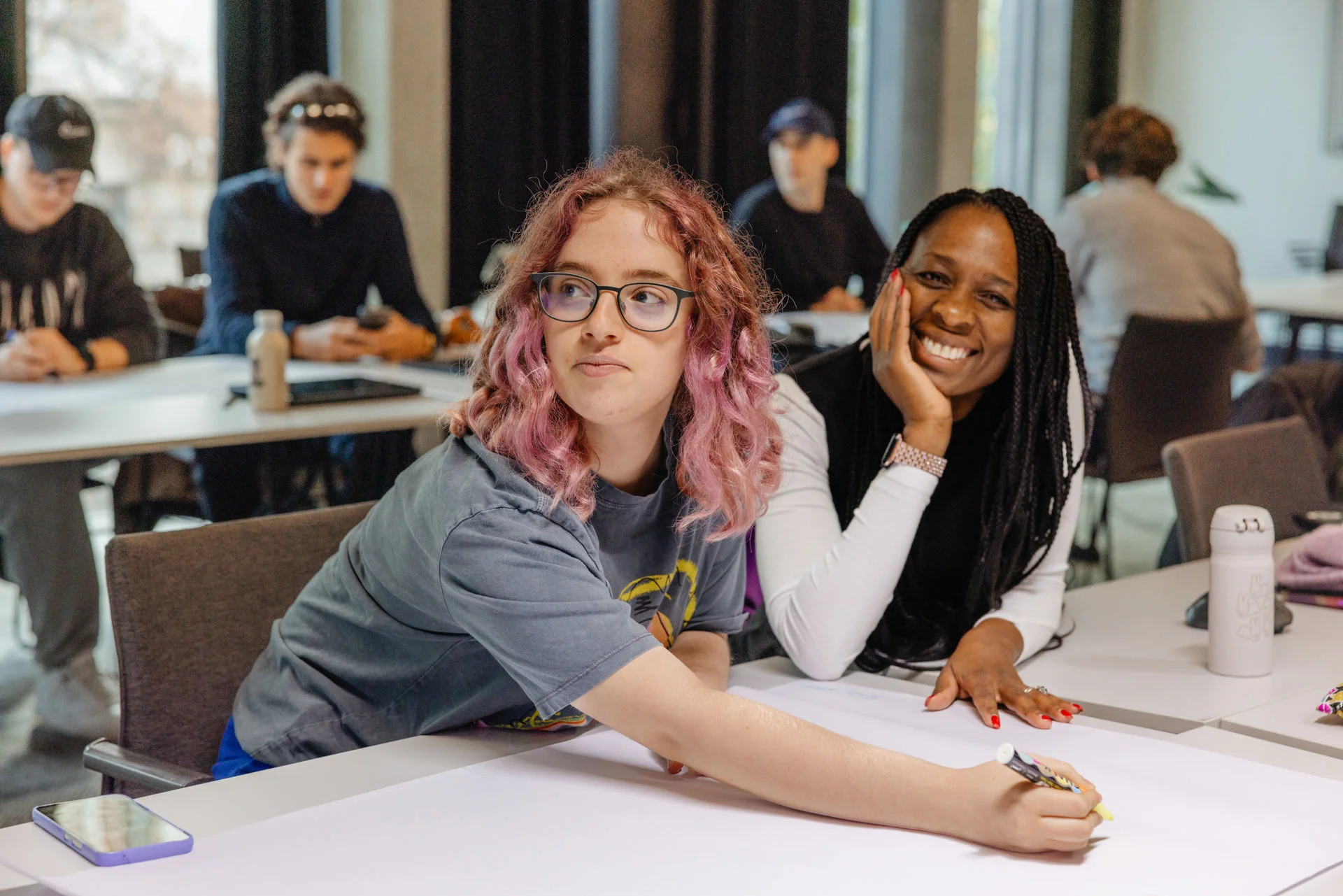
You cannot understand good design if you do not understand people; design is made for people.
Students and alumni
Meet the students who studied or graduated from the Digital Design & Innovation program at CODE.












Meet your Design faculty
The Digital Design & Innovation program is coordinated and taught by professors and lecturers who have decades of experience in their respective fields and specializations.
Learning approach
At CODE, learning is driven by doing, and here are some of the formats we use in our teaching and learning to foster this hands-on approach.
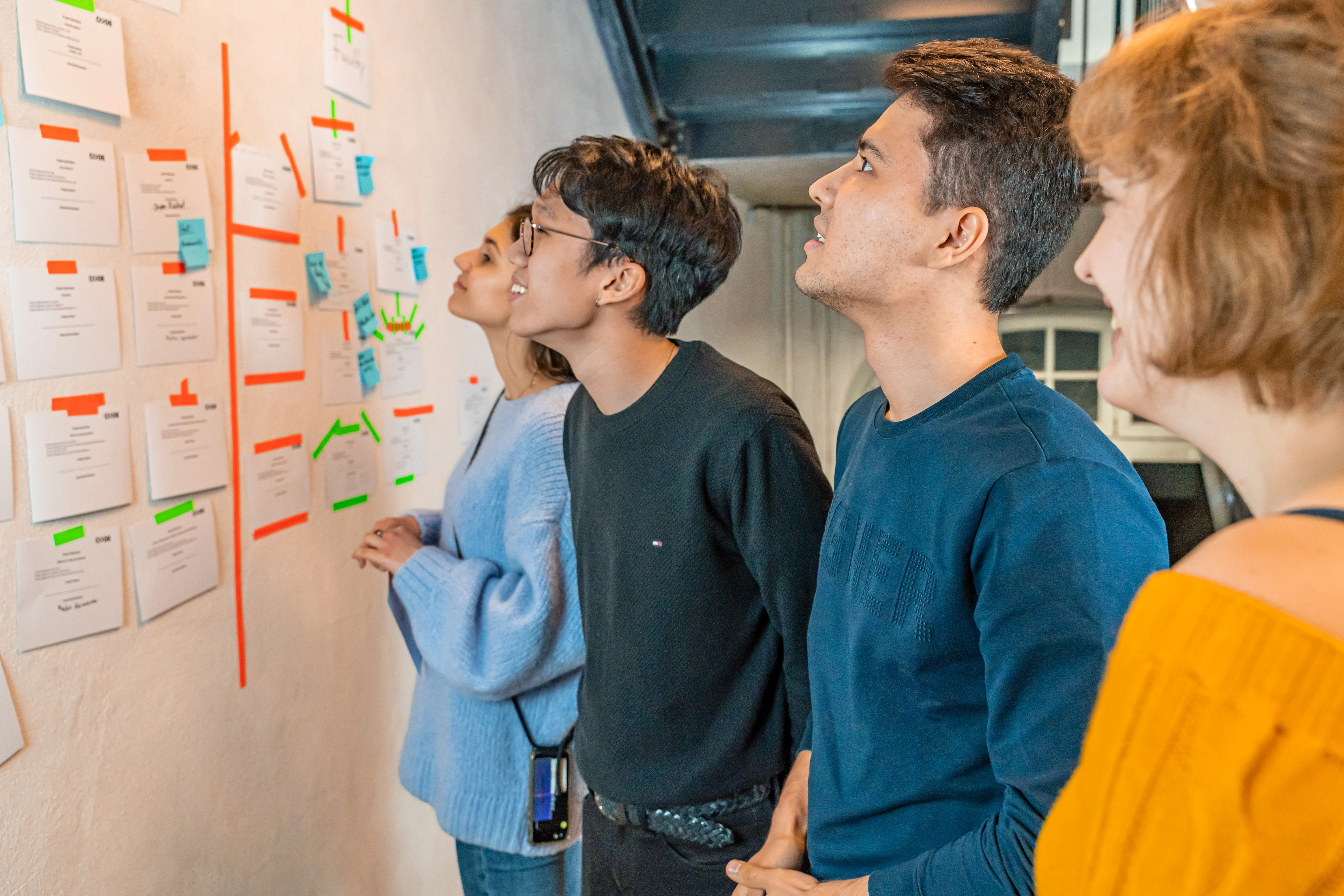
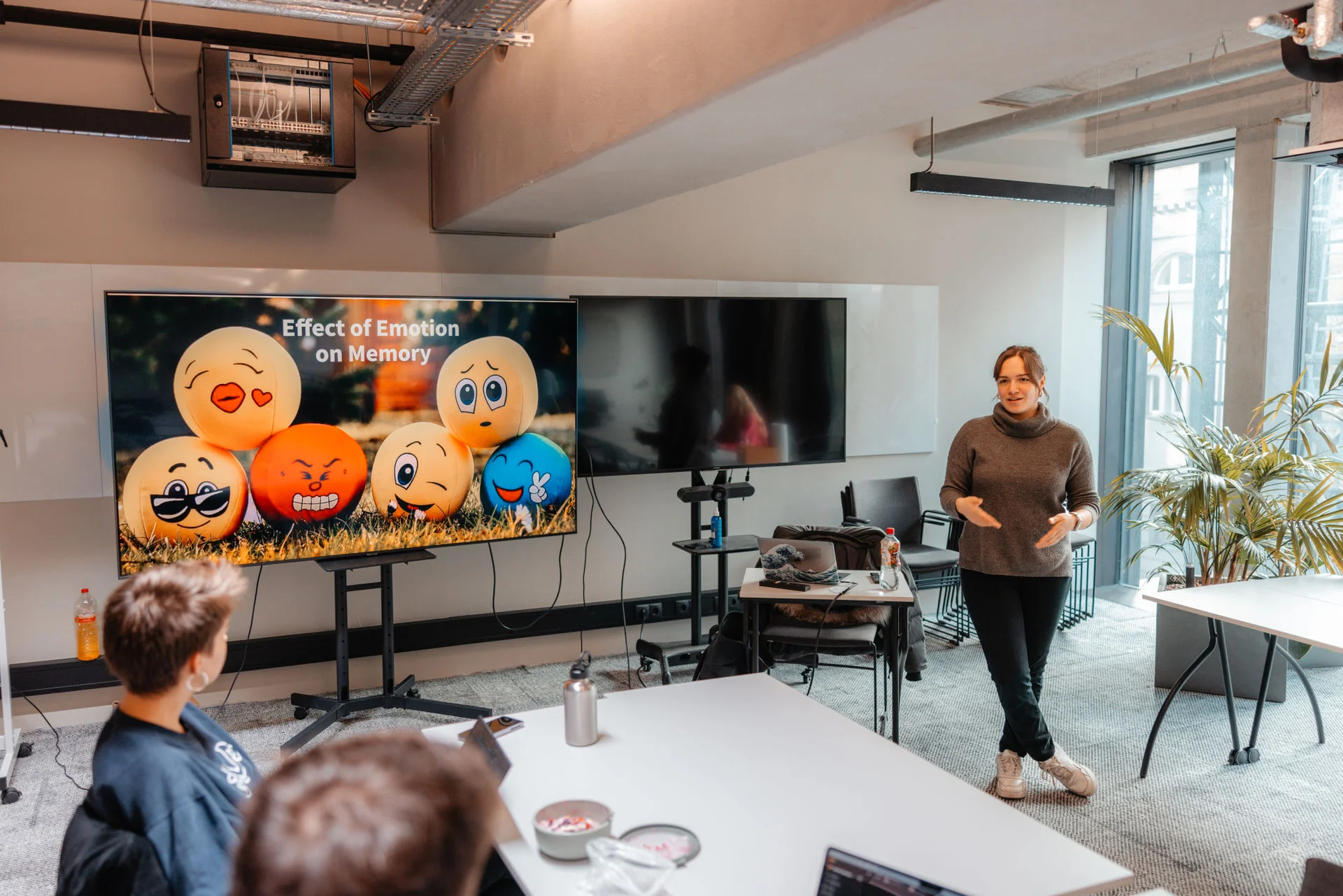
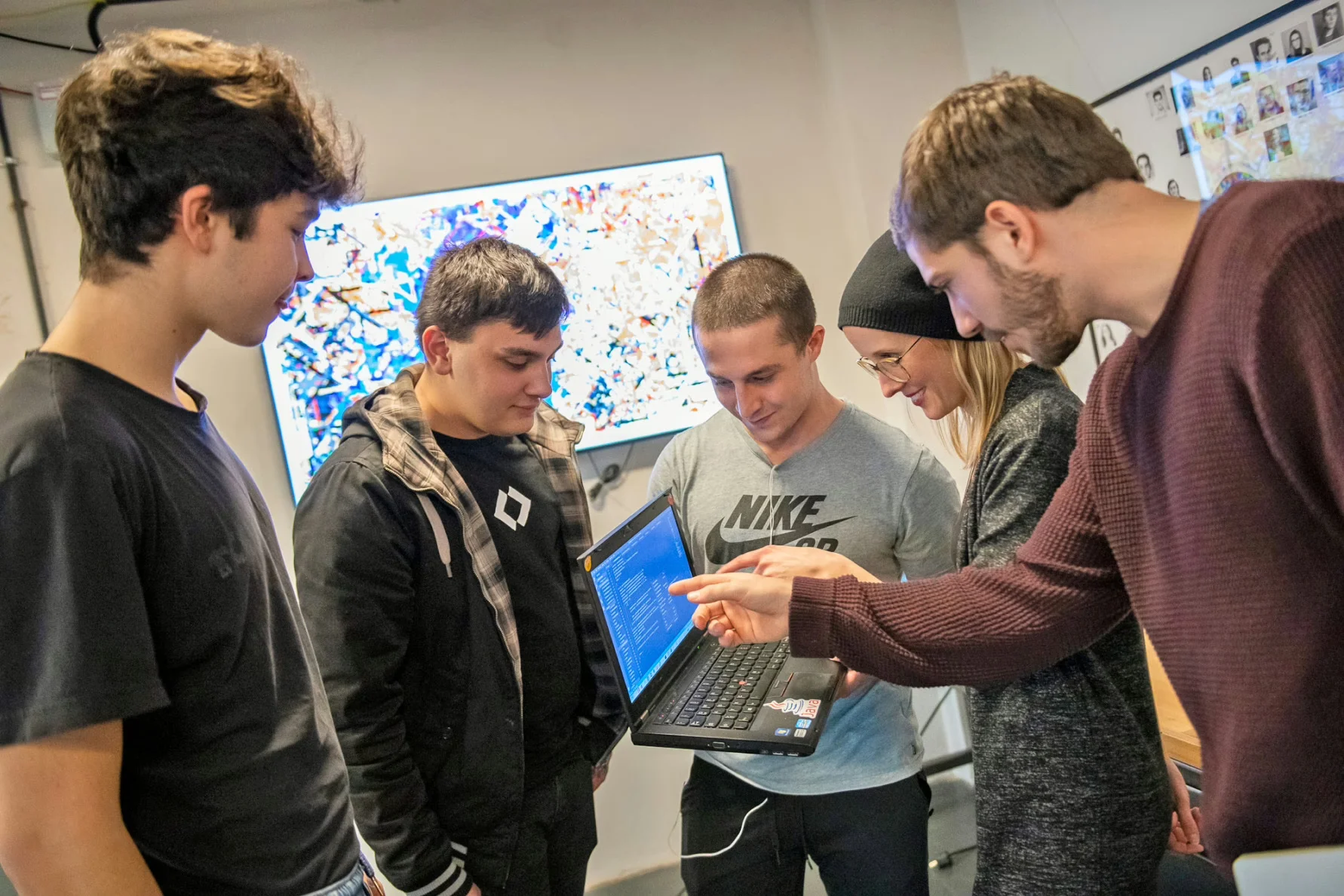
Career Paths
Studying Digital Design & Innovation opens up a wide array of career paths in the tech and creative industries. Some typical roles include:
- UX/UI Designer
- UX Researcher
- Interaction Designer
- Digital Product Designer
Want to be your own boss?
CODE is the perfect environment for entrepreneurs and future founders. Our Learning Concept and network of partners provides all the support you need to build your own successful company.


Frequently asked questions

The details are not the details. They make the design.
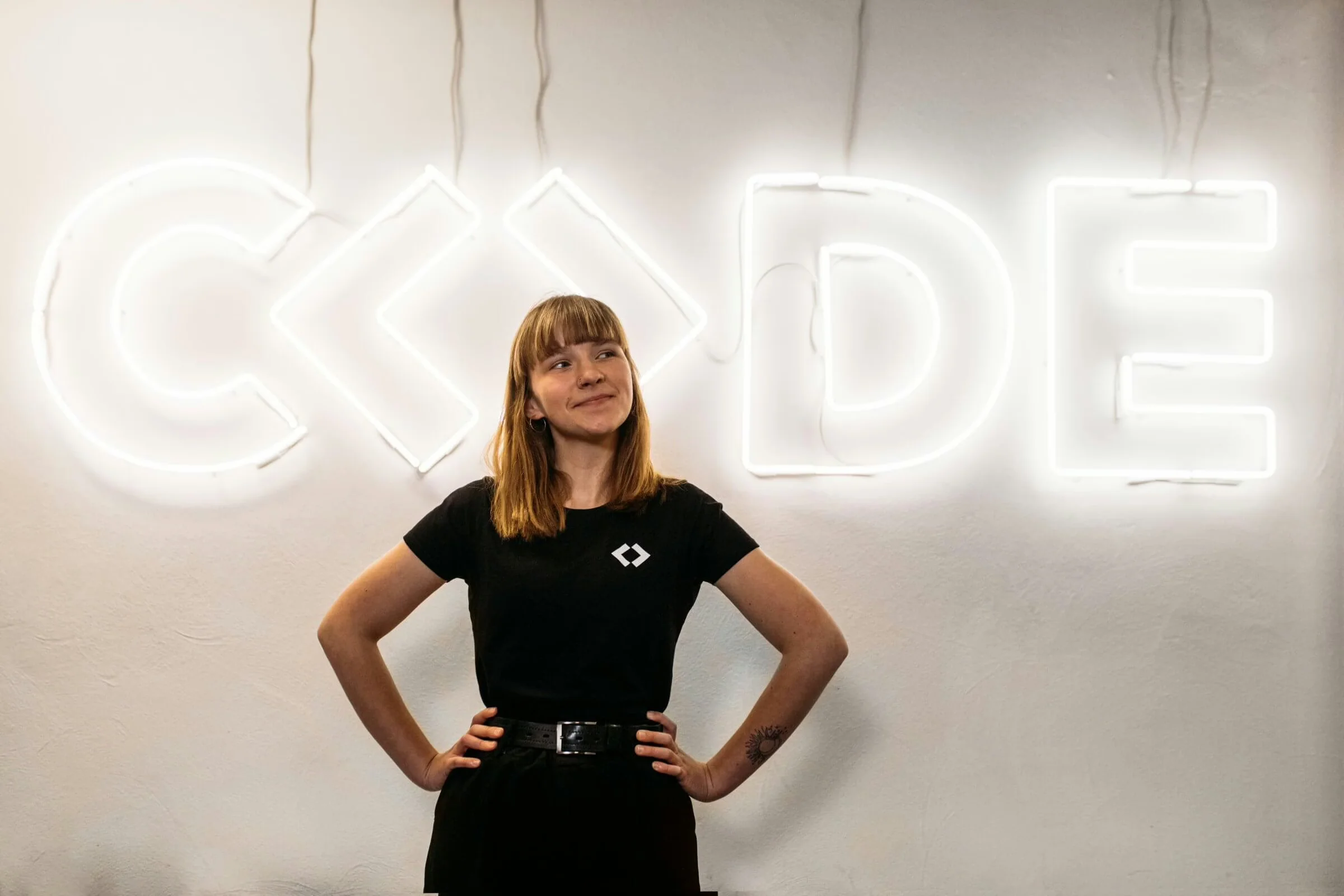
Admissions
At CODE we want to attract the most talented and passionate students - our admission process aims to challenge your drive and curiosity. Let us get to know you through your written application and learn more about CODE during your Admission Day. What are you waiting for?
Get additional information
If you’re interested to learn more about this program, fill out the form and we will send you additional information.
For more information, you can reach out to our admissions team at admissions@code.berlin .


For more information, you can reach out to our admissions team at admissions@code.berlin .


Explore further
Learn more about our study programs and the experience of studying at CODE.
Applications are open!
Register and apply for a chance to join the next generation of CODE students.
